Events and opportunities by Lucija Ropret
From Researcher to MVP - the second Cogsteps live program, successfully closed
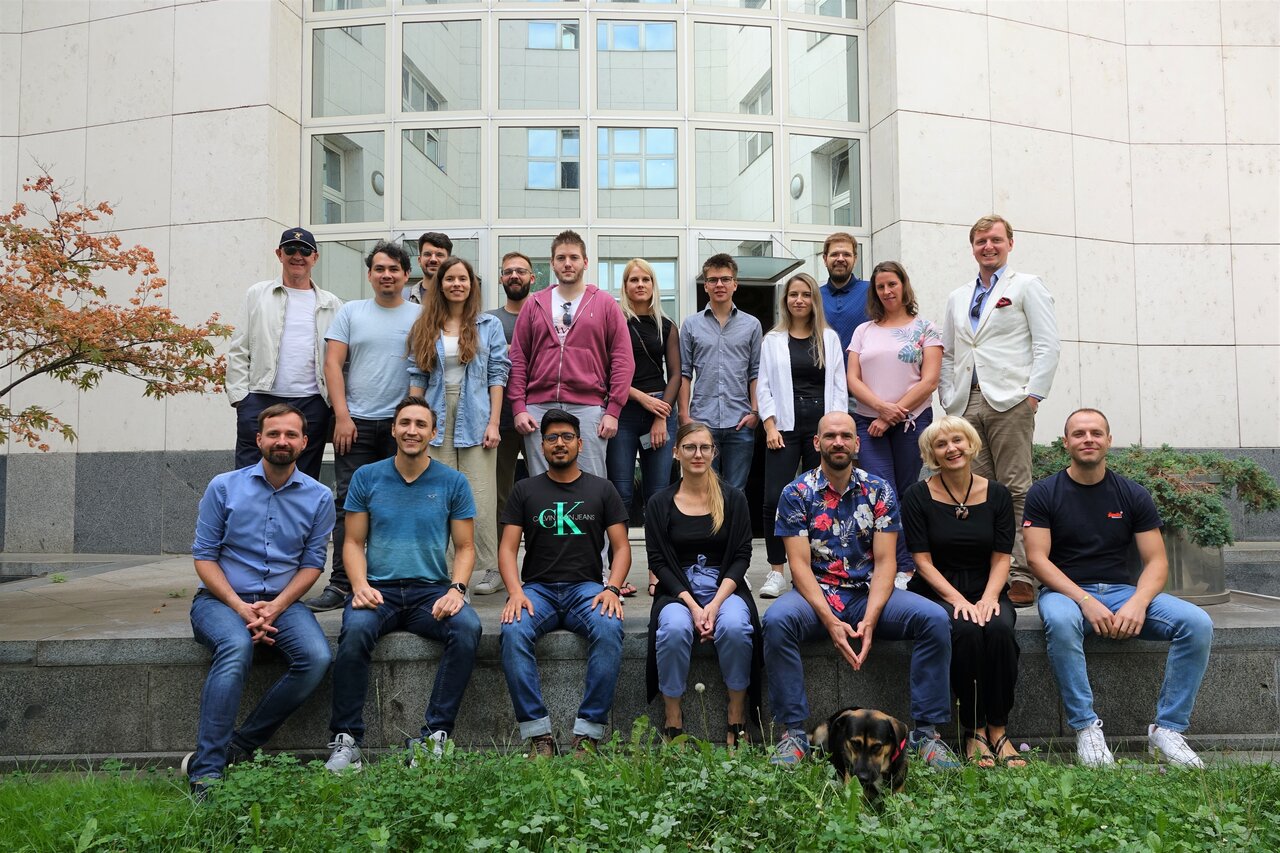

Published 12.09.2022.
On the first day, we welcomed our guests from Ljubljana University Incubator, University of Ljubljana, Graz University of Technology and Know-Center at the Faculty of Electrical Engineering and Computing where Matija Srbić, our Program Manager, presented the project and agenda for the next days. The participants introduced themselves, their filed of work and the reason for applying to the program. They came from different fields of study – Faculty of Chemistry and Chemical Technology, Faculty of Social Sciences, Faculty of Natural Sciences and Engineering – Department of Textiles, Graphic Art and Design, Institute for Applied Information Processing and Communications and Know-Center. Later the participants and organizers spent their evening learning more about each other, their work and interests, and having fun over drinks.
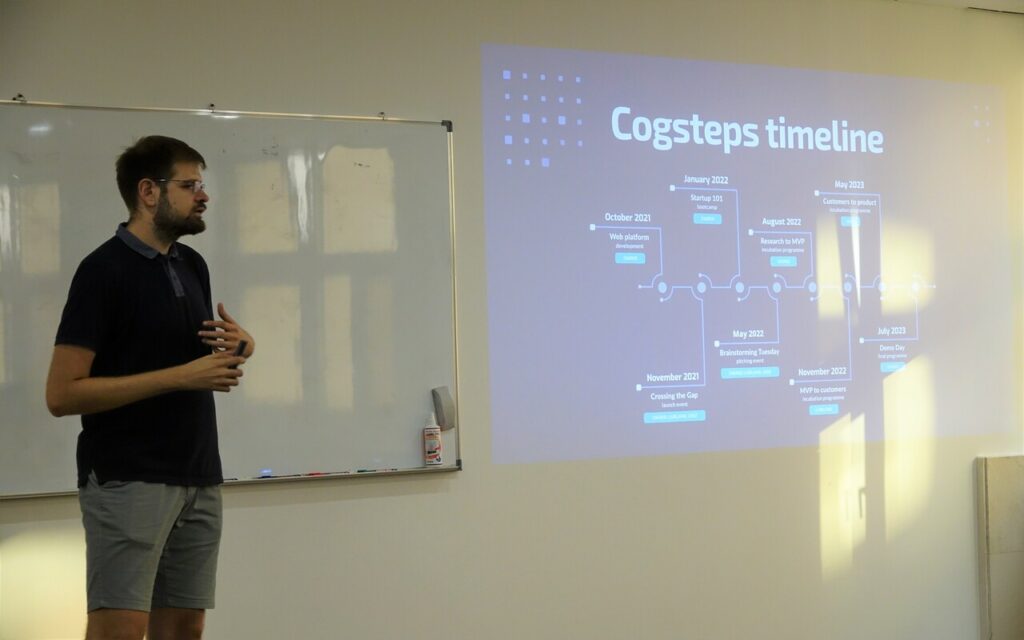
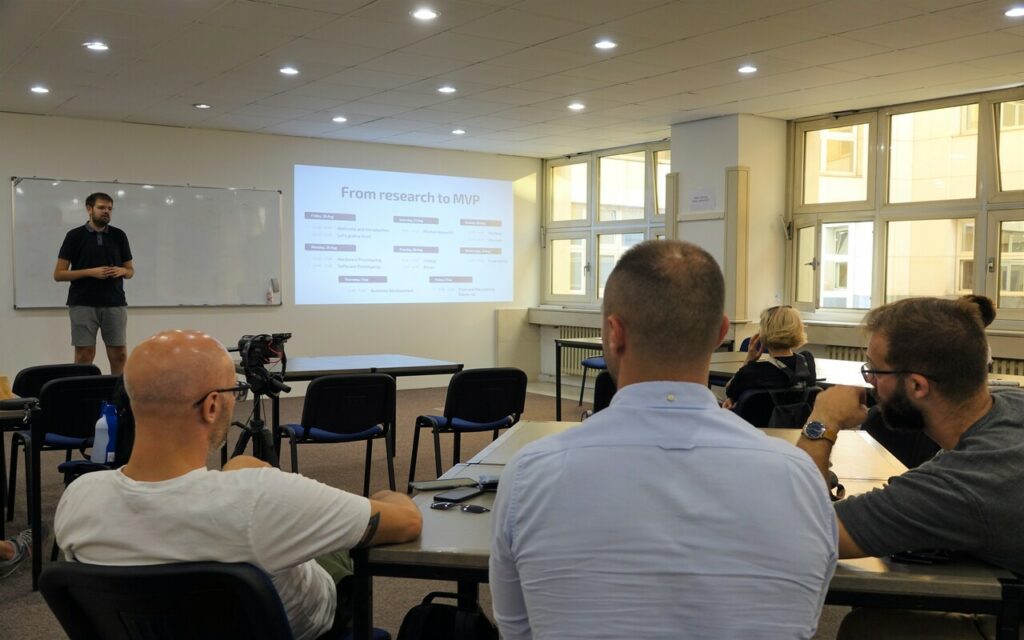
The weekend started with the Market Research workshop held by Filip Sviben from Infobip. Filip explained to the participants why it is important to conduct different types of research in different phases of business development. He also showed the participants how to conduct desk, qualitative and quantitative research with examples of how the research is conducted at Infobip. To show how a focus group is conducted, Filip simulated the focus group with the participants on the topic of coffee drinking habits.
Sunday was reserved for the Pitch & Storytelling workshop by Matija Srbić. Working on the pitch deck is necessary for every startup founder because a good pitch is a way to investors’ hearts – and pockets. Participants learned how to create their pitch deck, go over a fear of public speaking, and pitched their one-liner and elevator pitch. Participants saw to examples of how the pitch should look like from two incubator SPOCK alumni – Dora Machaček from Digicyte and Helena Virić Gašparić from Greener.
After Sunday’s workshops, the participants went on a witch walk around Zagreb’s city centre with Gornjogradske Coprnice. They learned about Zagreb’s mystical history and its historical figures while walking with the character of Marija Terezija Wintershoffen. They also learned their faith that the character of Sybill foretold them.
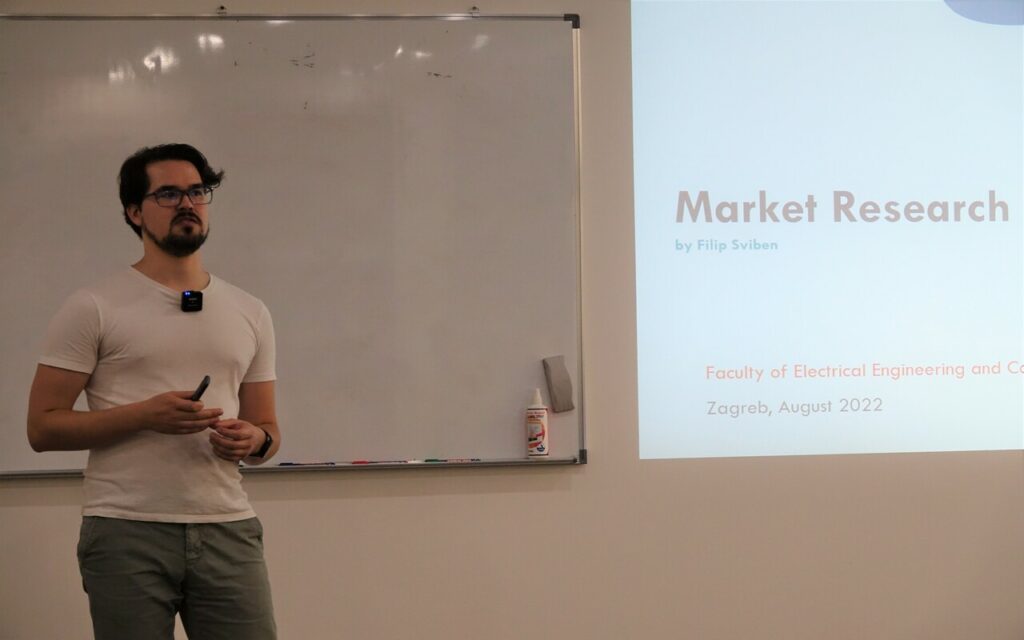
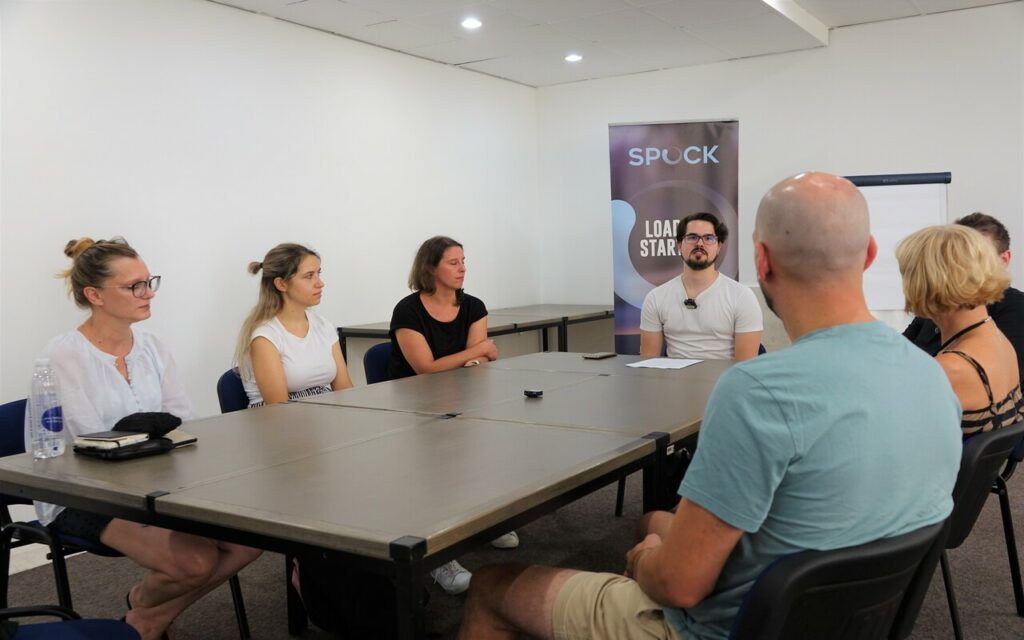
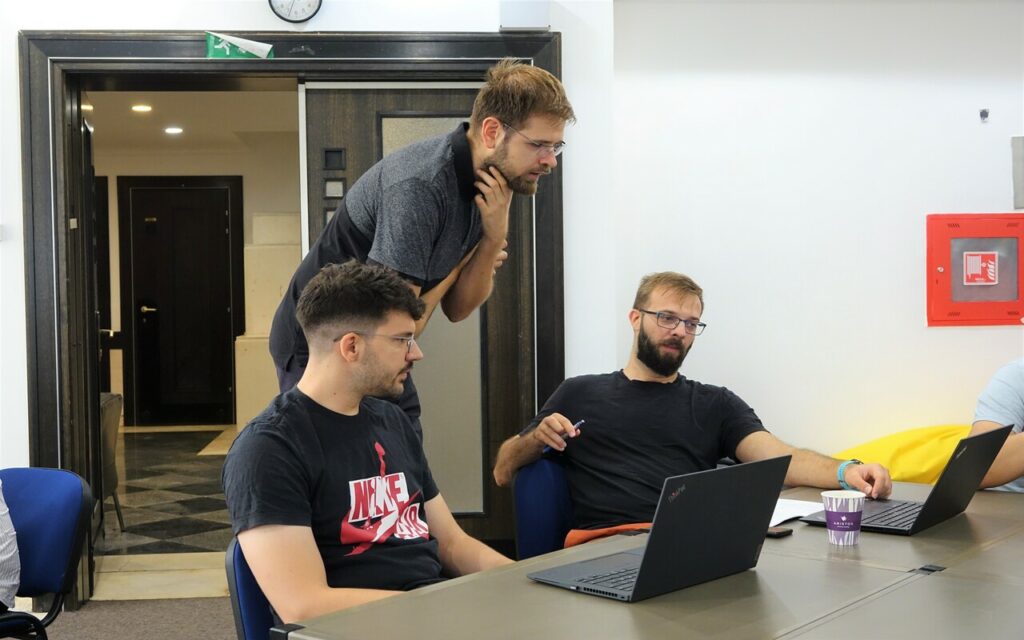
At the beginning of the week, we focused on Hardware and Software Prototyping. Firstly, Maj Hrovat from Juicy Marbles told the participants his story about starting his business and all the obstacles he and his team had to overcome to now have a successful business. He explained what is Lean manufacturing and engineering, what are the types of Lean engineering waste and what time does it take to create a patent. After Maj, Matea Tomić from Bornfight and Filip Fajdetić from Photomath covered the Software Prototyping focusing on the early phase of the prototyping covering the product development from the ideation and product strategy to the prototyping and MVP development.
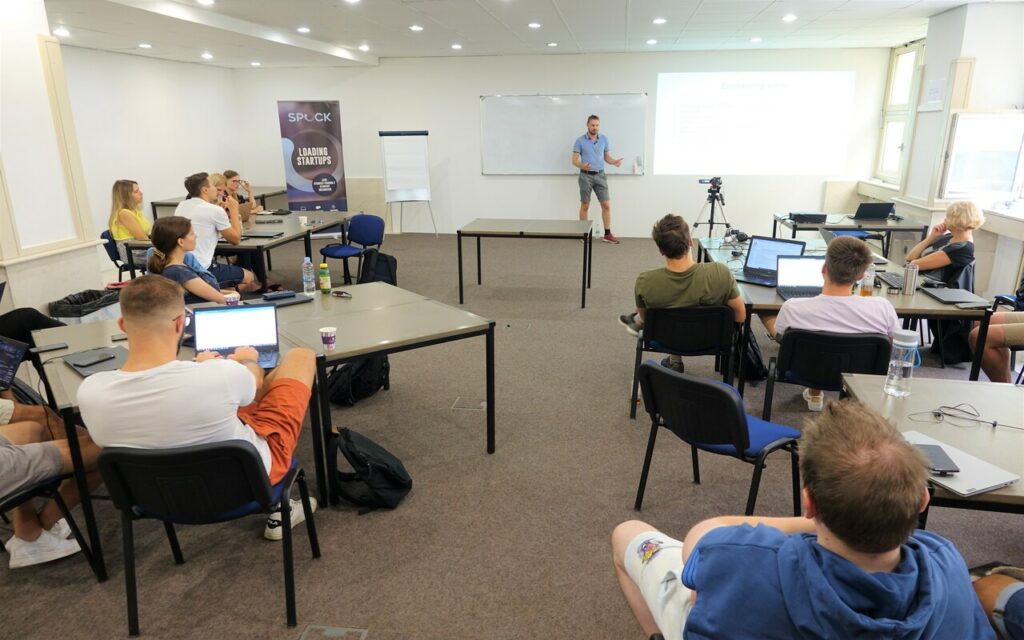
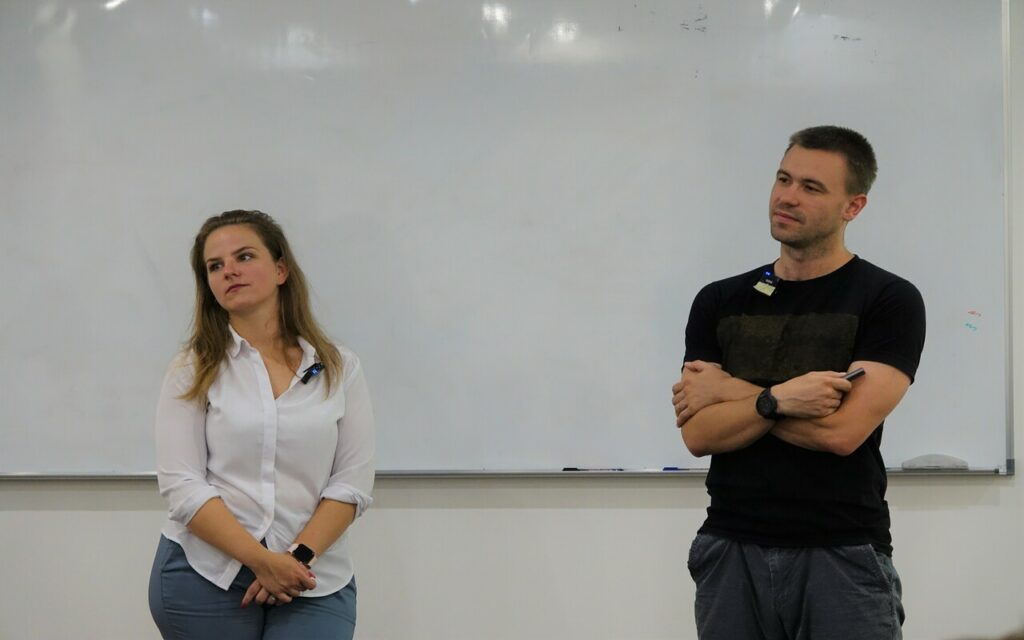
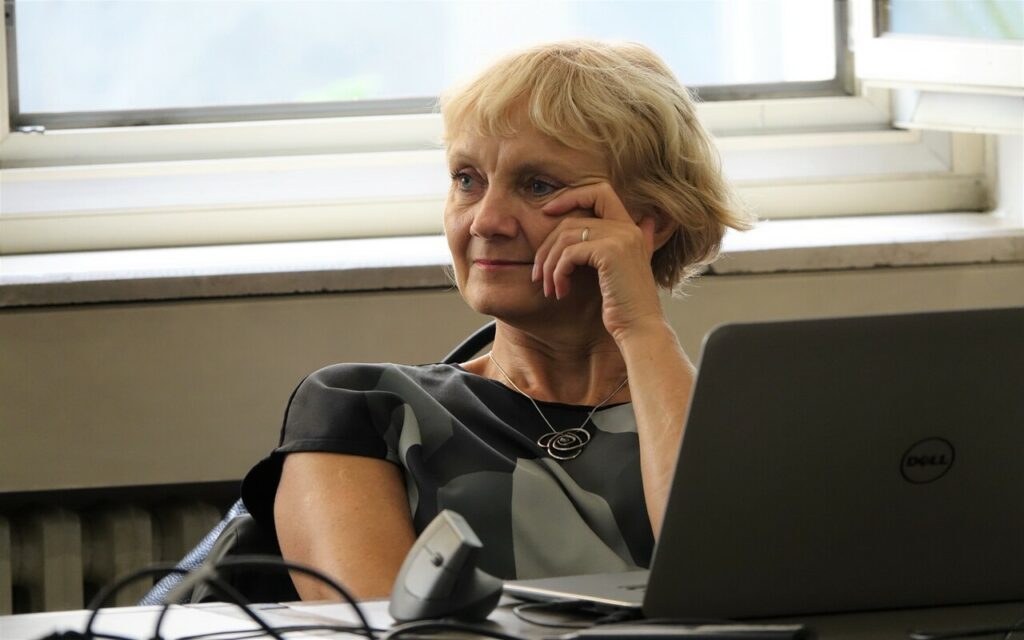
The fifth day of the program was a unicorn visit day. In the morning, we visited Infobip’s campus where Damir Prusac, VP of Engineering, and Monika Ivanović, Head of Employer Branging, showed the participants the impressive campus and some of the benefits of working in Croatia’s first unicorn. Later on, the participants learned more about Infobip and its communication services. Most of the participants didn’t know they use iInfobip’s communications services daily while using applications like Uber on their smartphones.
In the afternoon we visited Rimac Automobili. David Romić, Embedded Software Development Manager at Rimac Technology, told the participants more about Rimac’s past and future plans – like building a Rimac campus. Participants had a lot of questions about Rimac cars, the technology behind them and the business development of the company. The treat of the day was to see Nevera, the fastest electrical supercar in the world and its prototypes, as well as other valuable cars, like Bugatti and Porche.
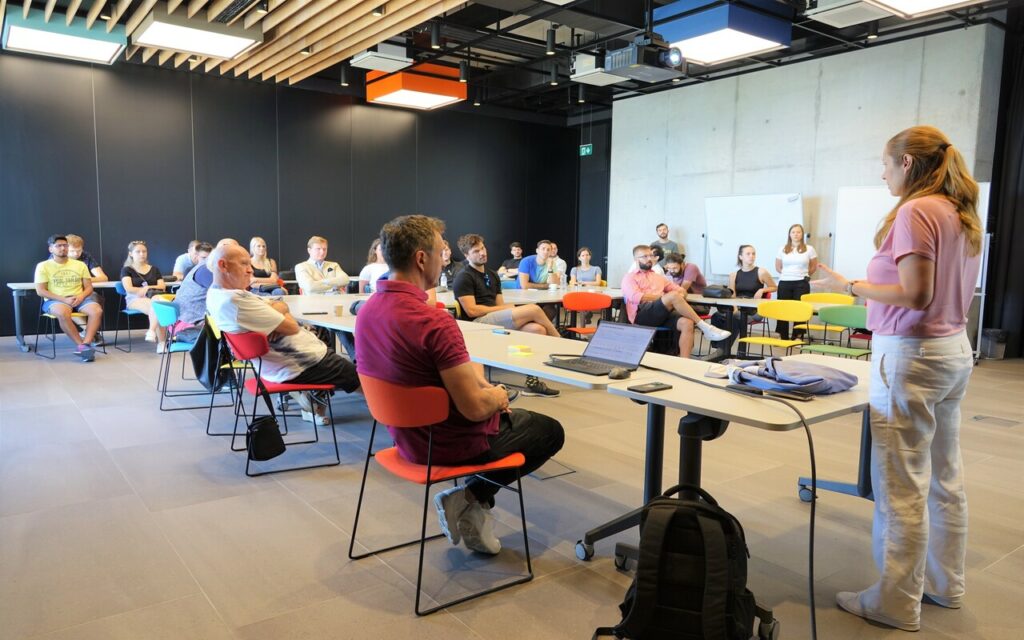
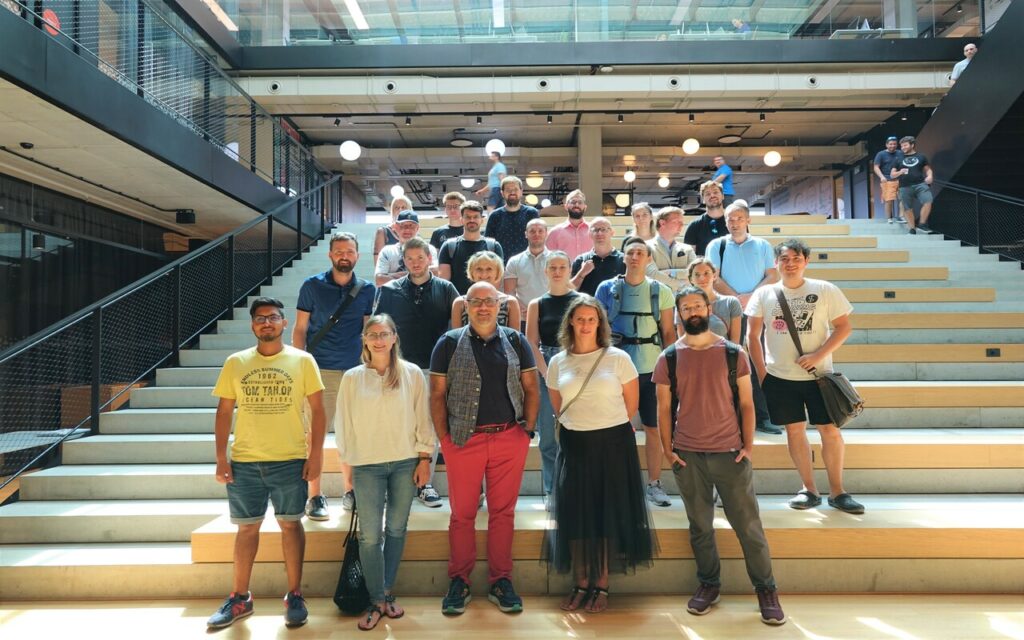
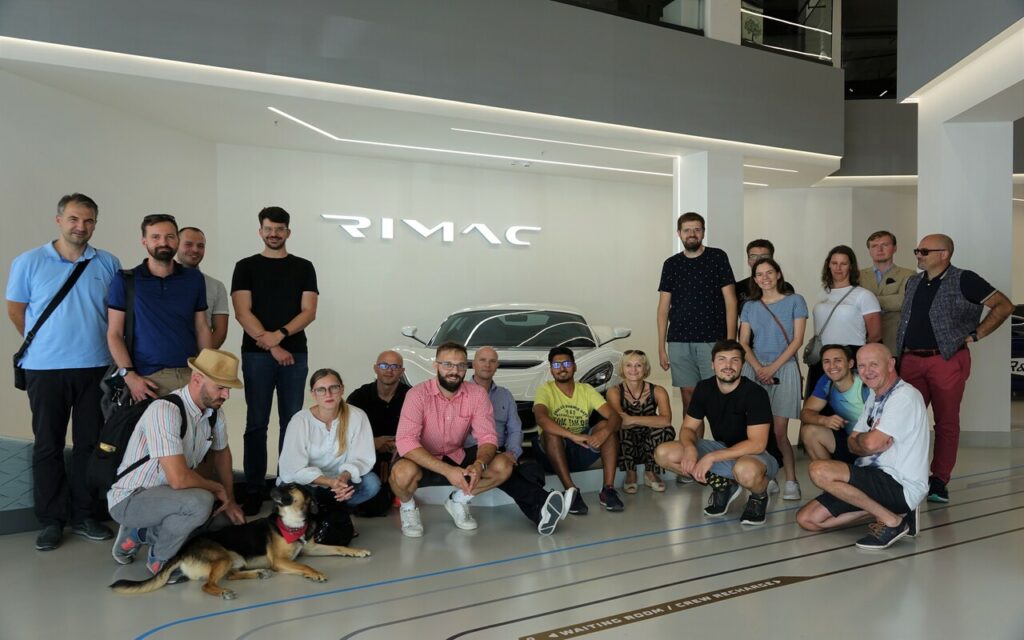
After the exciting and motivating day of unicorn visits, the participants were back at FER ready to learn more about starting their businesses. On the program for Wednesday was Fundraising held by Jakob Gajšek from Ljubljana University Incubator. Raising funds at the early stages of starting a business is the key to successful startup development. Jakob explained to the participants about different types of investors and the terms the investors use so that when the participants become founders and start negotiating with investors they are in a better-negotiating position.
The last workshop was the Business Development workshop. Gorjan Agačević from Amodo worked with the participants on creating their Business Model Canvas which helped the to define the advantages and weaknesses of their startup idea. They also worked on Customer Value Proposition and Impact Mapping, and learn more about the tools like FlowMap, ClickUp and DocSend which can make their everday life easier during the business development.
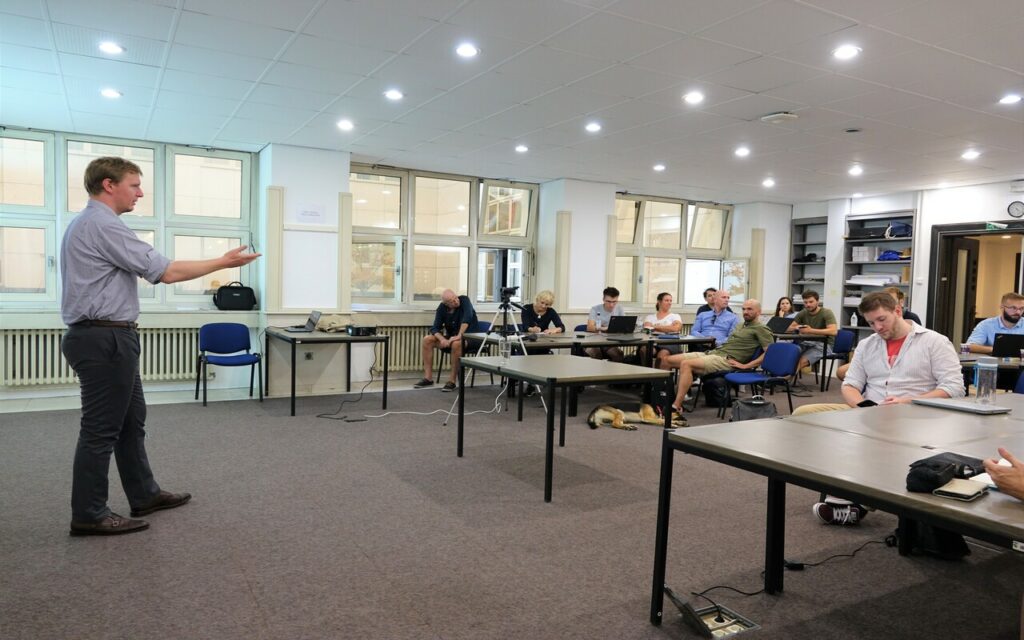
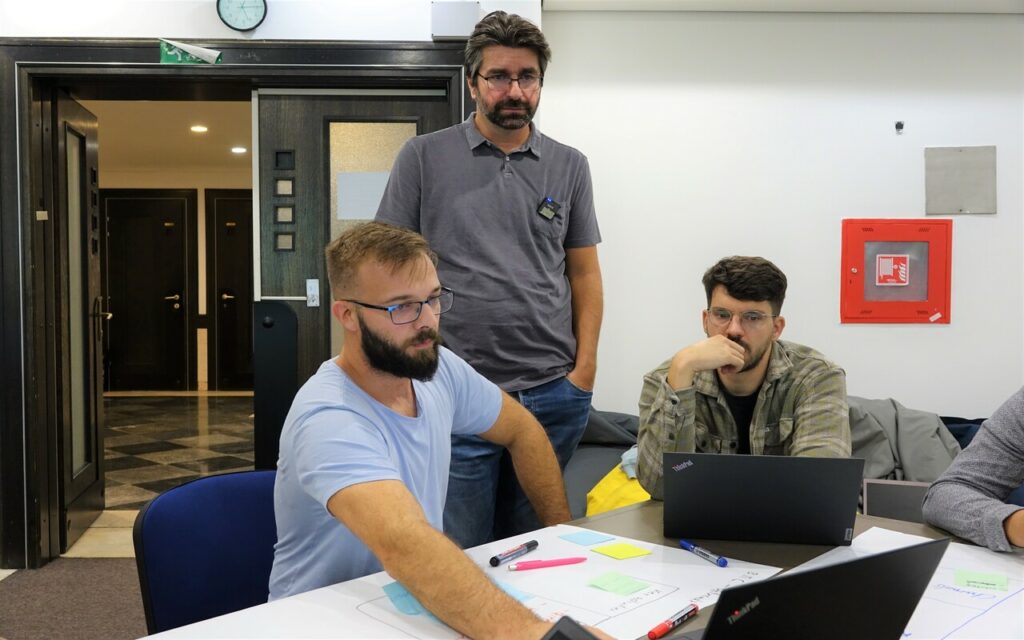
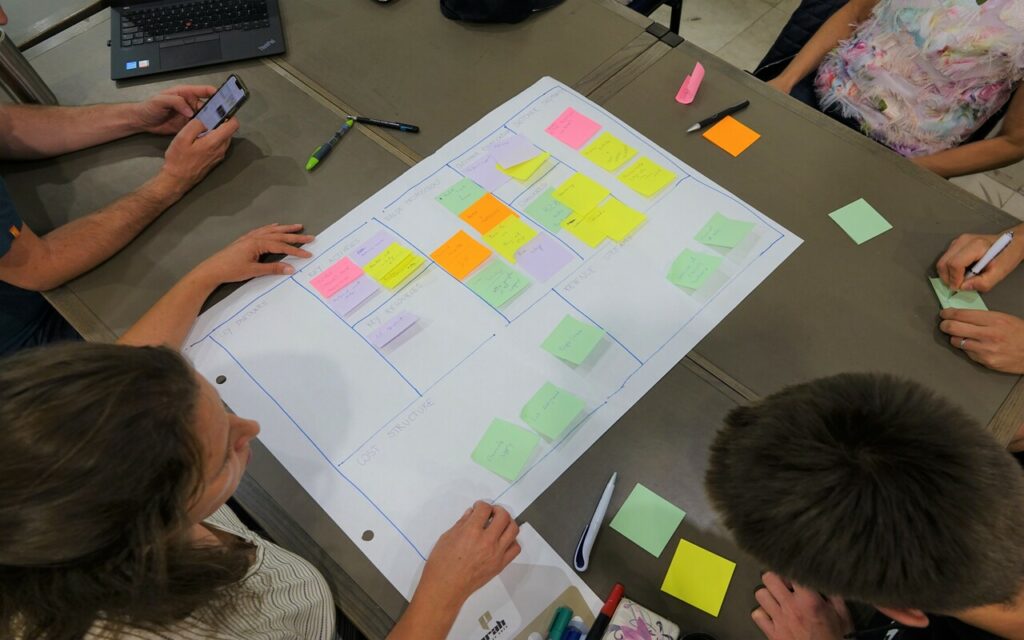
The program finished with the pitches from the teams who have worked on their pitch decks in the last few days. Firstly, Borut Šketa from the Faculty of Chemistry and Chemical Technology in Ljubljana pitched his team’s idea of Stablezyme, a novel method for preparation of nano-CLEA particles and its application in continuous microbioreactors. After Borut, Emanuel Lacić from Know-Center presented Uptrendz, the recommendation system for web platforms, and Karl Koch from Institute for Applied Information Processing and Communications pitched CoHealth, a platform which connects patients, practitioners, and researchers globally.
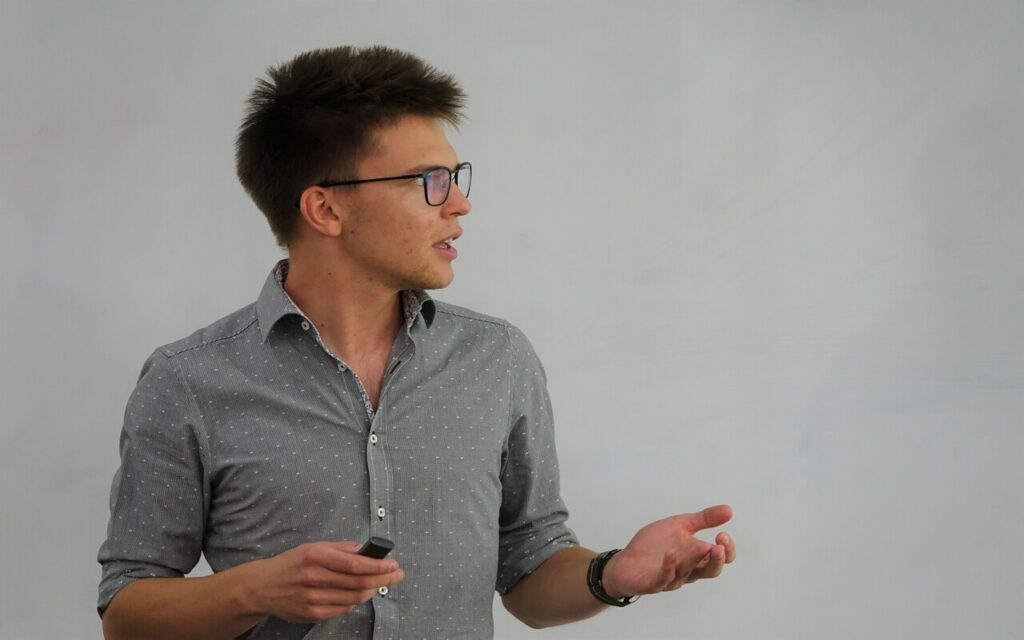
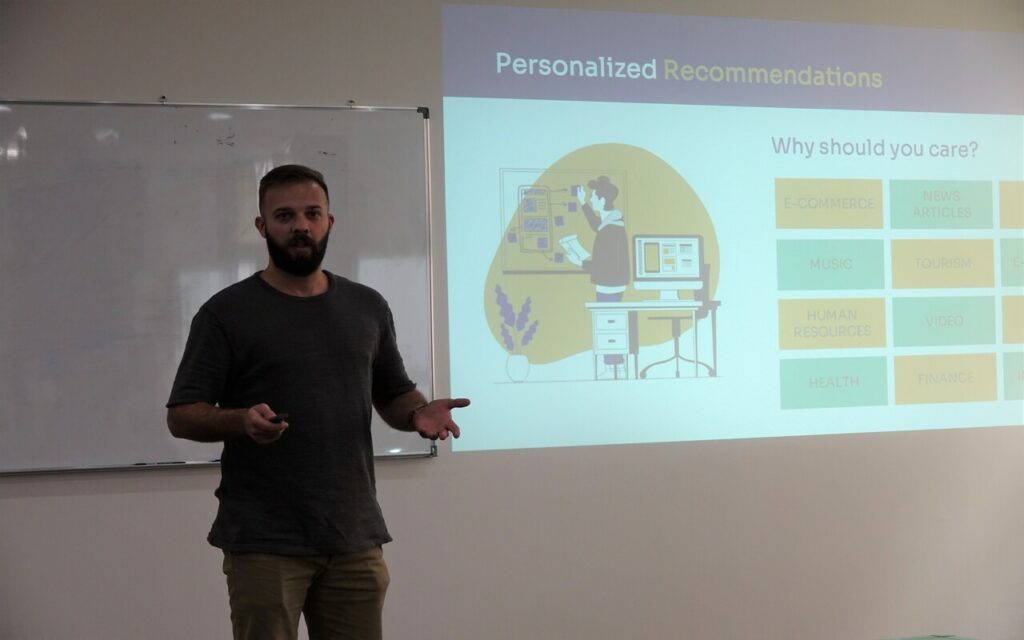
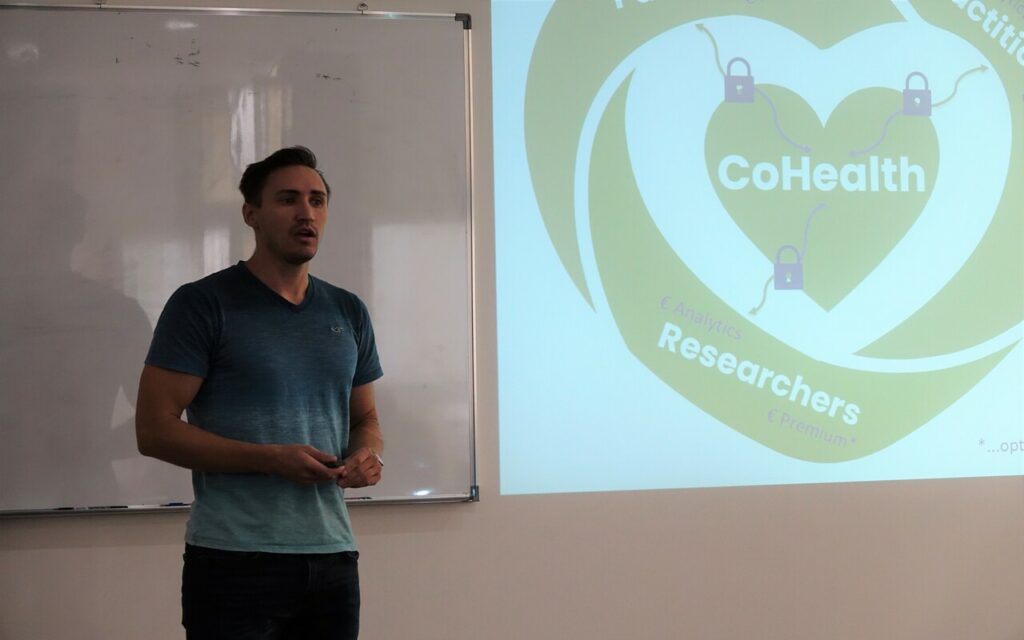
The participants expressed their happiness with the program – with the startup education, as well as the social events and unicorn visits. They showed their interest in being a part of the startup ecosystem, and are now one step closer to founding their own deep-tech startup.
We want to thank everyone who was a part of the Researcher to MVP program – the participants, mentors and country coordinators. This was the last live program during the project held in Zagreb, but we offer more opportunities for knowledge transfer and inclusion in the startup community in Ljubljana and Graz during the live startup programs next year. In the following period, the Cogsteps platform will be live and ready for you to connect to different shareholders of the startup ecosystem. We invite you to follow our Facebook and LinkedIn accounts to read the news about our platform and following startup events.